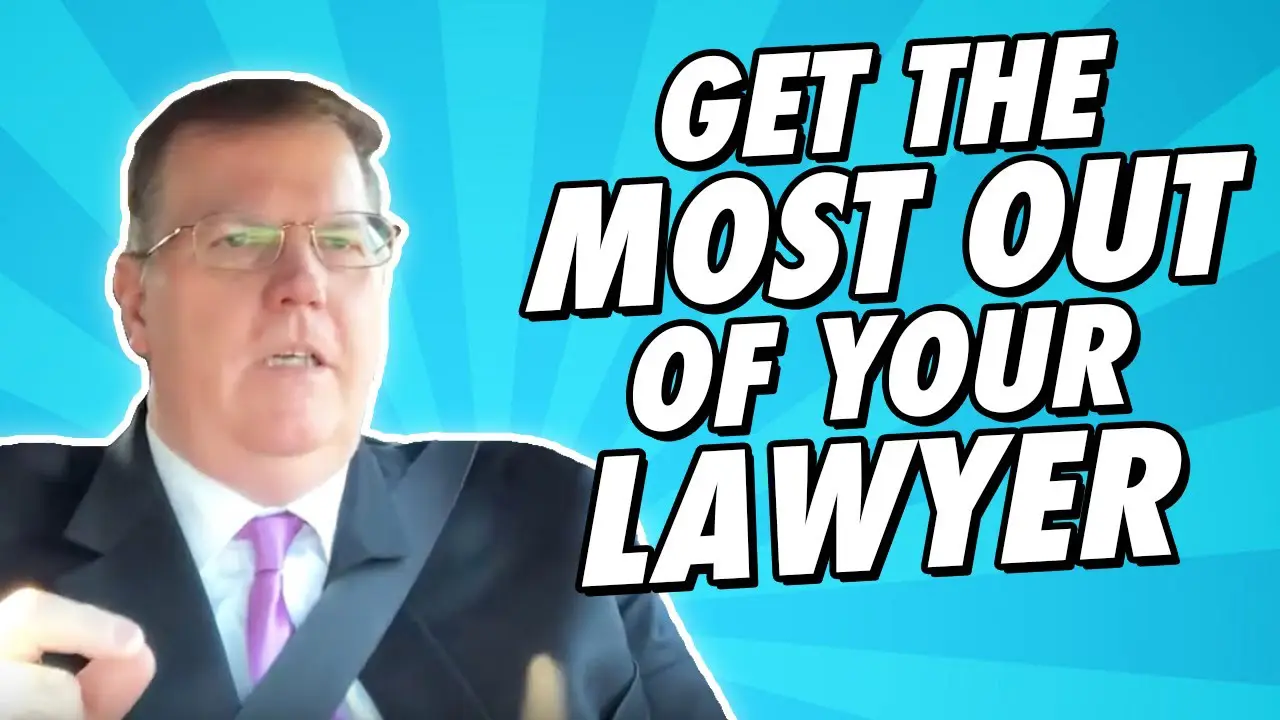
You hired a criminal defense lawyer to represent you. Now, how do you get the most out of that lawyer?
I’m Northern Virginia criminal defense attorney, Scott Nolan. And today, I’d like to talk to you about how to get the most out of your lawyer.
There are basically two types of clients, those that get involved with their own case, and those that leave it in the hands of their lawyer. The first kind are definitely going to get better results. Let’s talk about why.
Taking responsibility
I can tell from the moment a person walks into my office, whether or not they’re going to be helpful to themselves. One person may not have brought any paperwork, doesn’t really know exactly what they were charged with, and is also uncertain of the names of the witnesses but thinks maybe one of them started with a B. It’s going to be hard to help that person.
But the person who comes in and says, “Here is the warrant that I was charged with. Here is a photograph of my car. Here is the name of the police officer. By the way, I brought in my driving record.” That person is probably going to do a lot better.
Bring your lawyer all the information you can
The first step to getting the most out of your lawyer is to bring them all the information you can. Don’t start thinking about it when you’re sitting there in the lawyer’s office. Bring with you all the documentation and paperwork that you can. We lawyers love paper.
What do you actually want
Also, if you know even just a few names or facts, and you’ve written them down, bring a copy for your lawyer. It’s super helpful. We may see the case slightly differently than you do, but it’s still very helpful for us to know how our clients are thinking about the case. It helps us understand what it is you actually want. That’s step number two.
In fact, before you go see the lawyer for the first time, think about what it is that you want that lawyer to produce. Now, it might seem obvious that you want me to win your case, but it’s actually more complicated than that.
What’s your main concern?
Is your main concern jail? Is your main concern keeping your driver’s license? Is your main concern your top secret security clearance? Is your main concern not having any sort of criminal record? Is it your upcoming custody case?
Your lawyer needs to know those things because the work that we put in may be the same. However, the goal and the way we frame our efforts will vary depending on what it is that you, our client, actually wants to achieve.
What can you contribute?
The third thing that you need to ask your lawyer is what you can contribute. That may be taking a defensive driving course. It may be doing community service. It may be nothing. Perhaps you’ve done everything you can. Ask the lawyer what you can do to improve your circumstances or to help him or her.
Stay off the phone and stop texting
Fourth, and most importantly, stay off the phone and stop texting. Police know how to access your phone records. They know how to access your text records.
You have no idea how many times people are convicted because they denied everything to the police, to the courts, and to their lawyer. Then they text their girlfriends saying, “Yeah, they’re all idiots. They don’t know that I robbed that bank or whatever.” Texts and phone calls are going to kill you. Just stop talking.
In your lawyer’s office, you can talk about your case. When it comes to mom or grandma or your girlfriend, shut your mouth. Talk about something else. I’m sure grandma makes a wonderful pie. Talk about that.
Stay in contact with your lawyer
Make sure to stay in contact with your lawyer. Your lawyer is going to take your contact information, your address, your telephone, and your email address right at the start. When those things change, tell your lawyer right away.
It’s incredibly common that I need to call one of my clients and say, “Look, we’re moving the court date,” or, “I need this piece of documentation.” Then I hear that the client has a phone system that hasn’t been set up yet so you can’t leave a message.
I’ll call three or four times and never hear from that person. I’ll send a letter and never hear back. Stay in contact with your lawyer. That does not mean you have to call him every week. And certainly not every day. It just means that when things change for you, when you’re no longer easily available, if you’re leaving the country or the state, be sure to let your lawyer know.
Keep in mind how you appear in court
It’s also important how you appear in court. Take court seriously. No T-shirts, no shorts, no flip flops, and no cut-offs. You don’t have to wear a suit, although that wouldn’t hurt. I really think that the younger you are, the more formal you should be dressed. It does not hurt to demonstrate to the court that you’re taking it seriously.
If you’re under 30, I’m going to strongly recommend a coat and tie for men, and for women I would suggest dresses they might wear for a job interview. If you are over 30, men can probably skip the tie but they should dress business casual. The same is true for women. Wear business casual, but leave behind the flashy jewelry.
I want to be really clear with both sexes. Do not dress like you’re headed to the club. Judges and lawyers will look at you and judge you, and that is not what you want to be judged on. Just dress like you’re going to a job interview.
Consider the probable outcomes before you go to court
The last way to get the most out of your lawyer is to have a good idea of what the probable outcomes might be. Before you go into court, your lawyer should be able to lay out for you the two or three most likely results of a plea negotiation or of a trial.
Nothing is more common than when finally being confronted with a difficult choice, the defendant hems and haws and demands more time and wants a continuance. That way, they may let a good deal slip through his or her fingers. Don’t let that be you.
What you should do
Decide ahead of time what you’ll do. If it turns out to be scenario A, then I’m going to make decision X. You need to know what the likely outcomes are, and what you’re going to do in each of those situations. Have it in your mind, so that when you are faced with the actual decision, it won’t be so difficult.
At the end of your case…
Finally, at the end of your case, consider whether or not your defense attorney did a good job. And if he or she did a good job, then take a few minutes to give him or her a good review.
You might also want to ask that lawyer where they would like this good review. If they don’t know, I strongly recommend to leave it on Google. Google is much more important than Yelp, or Avvo, or any other website. A great review on Google will do more for your attorney than almost anything else you can do.
So that’s how you get the most out of your lawyer. If you have any questions about this or any other area of the law, please feel free to give me a call or contact my office. I’ll be happy to talk to you.



